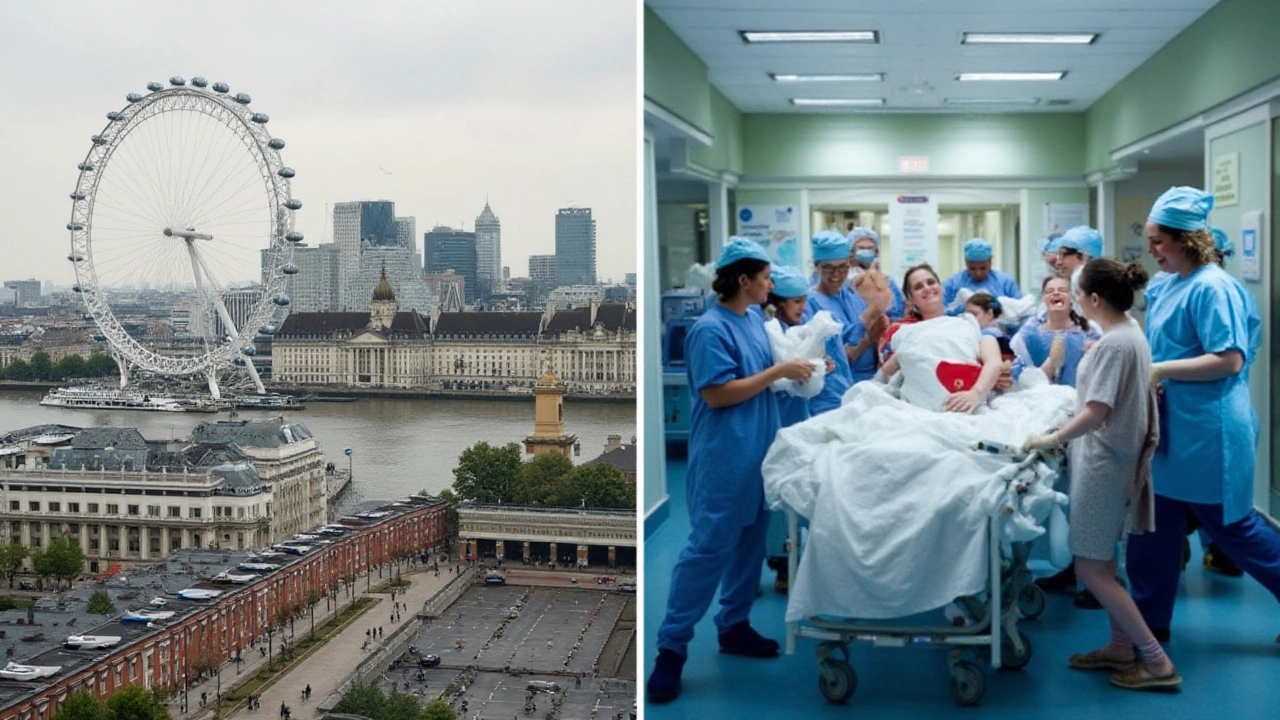UK Medical Care: What the NHS, Private Insurance, and Foreigners Need to Know
If you live in the UK or are planning a visit, you’ll hear a lot about the NHS, private health cover, and waiting times. Let’s break it down so you know exactly where to turn when you need a doctor, a scan, or a surgery.
The National Health Service (NHS) is free at the point of use for residents. That means you can walk into a GP surgery, get a referral, and see a specialist without paying a bill. The trade‑off is that popular services can have waiting lists. For routine appointments you might wait a week or two; for elective surgery, the wait can stretch to several months.
How to Navigate NHS Waiting Lists
First, book your GP appointment online or by phone. Explain why you think your case is urgent – the GP can flag you as high priority and speed up the referral. If you’re facing a long wait for a non‑urgent procedure, ask the hospital about a “fast‑track” option or a private‑public hybrid where you pay a small fee to get an earlier slot.
Another tip: check the local hospital’s website for real‑time waiting‑time data. Some trusts publish average wait periods for common procedures like hip replacement or cataract surgery. Knowing the numbers helps you decide whether to stay on the NHS list or explore private alternatives.
Private Health Insurance – When It Makes Sense
Private health insurance in the UK isn’t mandatory, but many people choose it for faster access, a wider choice of hospitals, and the ability to pick a specialist. In 2025 the average monthly premium sits around £60‑£120, depending on age, health status, and cover level. Plans usually cover private hospital stays, diagnostics, and some elective surgeries.
If you’re a healthy 30‑year‑old, a basic plan can shave off weeks from an NHS wait. For older adults or those with chronic conditions, a higher‑tier policy may be worth the extra cost because it can cover complex procedures and post‑op care that the NHS might delay.
When comparing policies, look at three things: the list of excluded conditions, the waiting period before you can claim, and whether the insurer has a partnership with hospitals near you. A good deal often includes direct billing to the hospital, so you don’t have to front‑pay and wait for reimbursement.
For visitors and expats, the rules differ. The NHS provides emergency care to anyone on UK soil, regardless of residency status. However, routine treatment for non‑residents usually comes with a charge. Some countries have reciprocal agreements with the UK – for example, EU citizens used to enjoy free NHS access, but post‑Brexit rules now require a health surcharge or private travel insurance.
If you’re staying longer than six months, you can apply for a National Insurance Number and register with a GP. Once you’re on the NHS register, you’ll get a free NHS card and can access most services without extra fees.
In short, the UK offers a mix of free public care and optional private coverage. Knowing the pros and cons of each, checking waiting‑list data, and picking a sensible insurance plan can keep you healthy without unwelcome surprises.
Is England's Healthcare System Up to Par? An In-Depth Look
England's healthcare system, largely managed by the National Health Service (NHS), often sparks debates about its effectiveness and efficiency. Issues concerning wait times, funding, and comprehensive care are frequently discussed among both locals and expats. Understanding the interplay between public healthcare and private health insurance is crucial for navigating medical needs in the UK. This article explores how these factors impact healthcare in England today.
Navigating UK Healthcare: How US Citizens Access Medical Services
The article explores the possibility of US citizens receiving medical care in the UK. It covers the requirements, types of services available, and how insurance plays a role in these scenarios. Readers will learn about the advantages and drawbacks of accessing healthcare as a US citizen in the UK. This guide also provides useful tips for US travellers or expatriates seeking medical attention while visiting or living in the UK.


